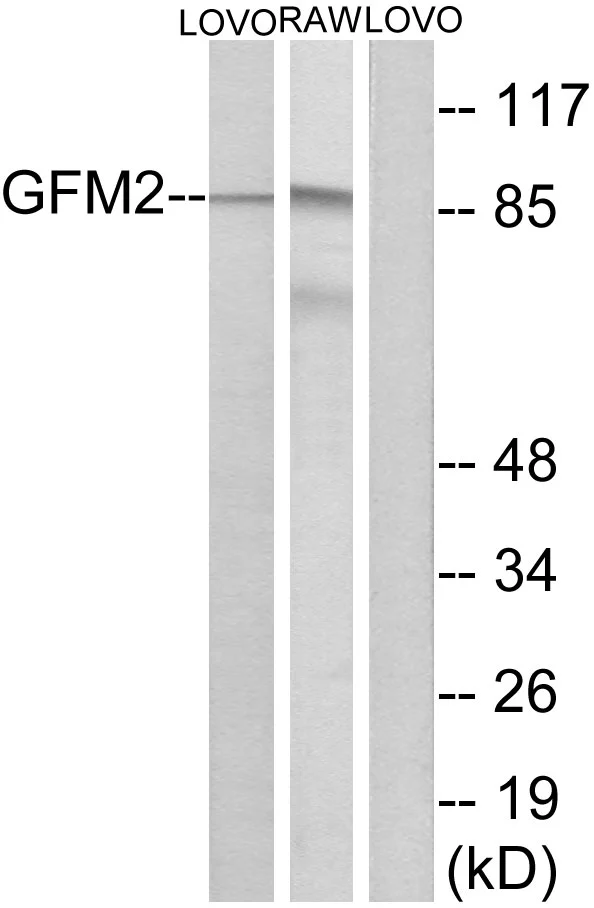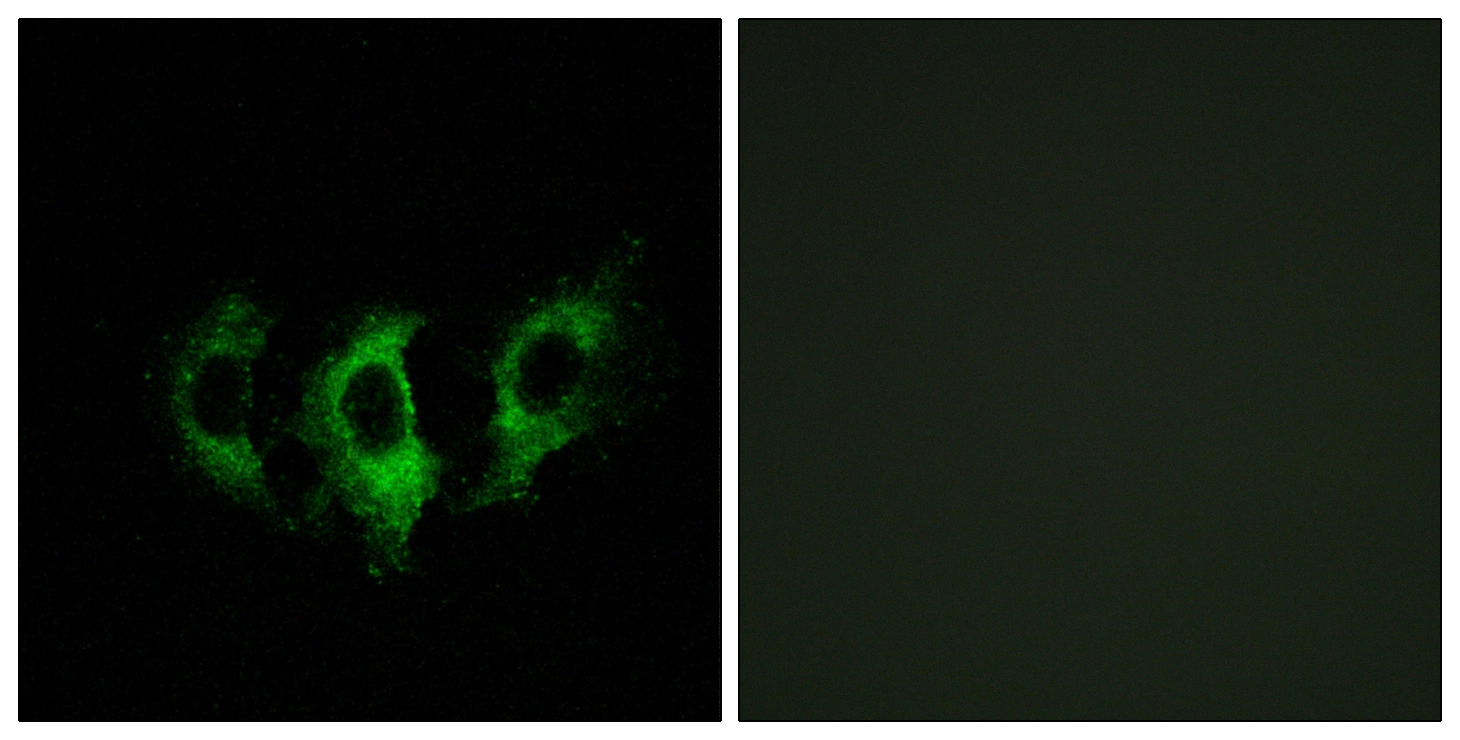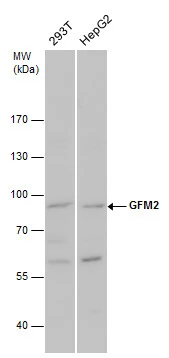
WB analysis of LOVO and RAW264.7 cell lysates using GTX87245 GFM2 antibody. The lane on the right is blocked with the synthesized peptide.
GFM2 antibody
GTX87245
ApplicationsImmunoFluorescence, Western Blot, ImmunoCytoChemistry
Product group Antibodies
ReactivityHuman, Mouse
TargetGFM2
Overview
- SupplierGeneTex
- Product NameGFM2 antibody
- Delivery Days Customer9
- Application Supplier NoteWB: 1:500~1:1000. ICC/IF: 1:100~1:500. *Optimal dilutions/concentrations should be determined by the researcher.Not tested in other applications.
- ApplicationsImmunoFluorescence, Western Blot, ImmunoCytoChemistry
- CertificationResearch Use Only
- ClonalityPolyclonal
- ConjugateUnconjugated
- Gene ID84340
- Target nameGFM2
- Target descriptionGTP dependent ribosome recycling factor mitochondrial 2
- Target synonymsEF-G2mt, EFG2, MRRF2, MST027, MSTP027, RRF, RRF2, RRF2mt, hEFG2, mEF-G 2, ribosome-releasing factor 2, mitochondrial, G elongation factor mitochondrial 2, mitochondrial elongation factor G2, mitochondrial ribosome recycling factor 2, mitochondrial ribosome-releasing factor 2, ribosome releasing factor 2
- HostRabbit
- IsotypeIgG
- Protein IDQ969S9
- Protein NameRibosome-releasing factor 2, mitochondrial
- Scientific DescriptionEukaryotes contain two protein translational systems, one in the cytoplasm and one in the mitochondria. Mitochondrial translation is crucial for maintaining mitochondrial function and mutations in this system lead to a breakdown in the respiratory chain-oxidative phosphorylation system and to impaired maintenance of mitochondrial DNA. This gene encodes one of the mitochondrial translation elongation factors, which is a GTPase that plays a role at the termination of mitochondrial translation by mediating the disassembly of ribosomes from messenger RNA . Its role in the regulation of normal mitochondrial function and in disease states attributed to mitochondrial dysfunction is not known. Alternative splicing results in multiple transcript variants encoding distinct isoforms. [provided by RefSeq, Jul 2013]
- ReactivityHuman, Mouse
- Storage Instruction-20°C or -80°C,2°C to 8°C
- UNSPSC41116161






![Various whole cell extracts (30 μg) were separated by 7.5% SDS-PAGE, and the membrane was blotted with GFM2 antibody [N3C2], Internal (GTX122890) diluted at 1:500.](https://www.genetex.com/upload/website/prouct_img/normal/GTX122890/GTX122890_42193_20160324_WB_M_w_23060522_446.webp)
